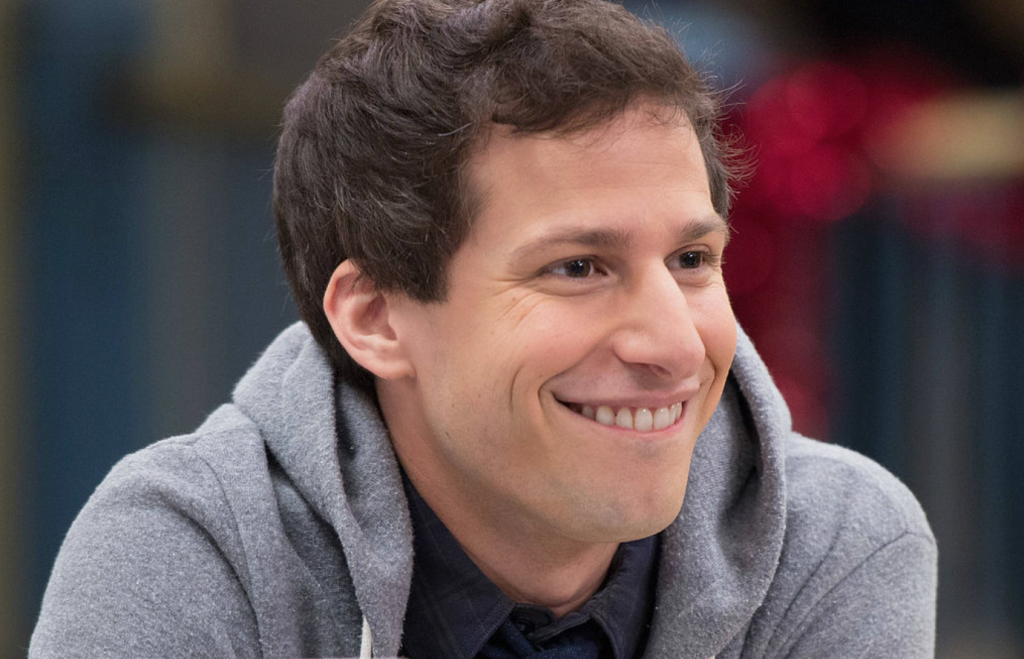Genre: Horror
Premise: An immature teenage girl must protect her younger brother when their babysitter becomes infected by something in the woods.
About: This script finished on last year’s Blood List. Zachary Donohue and Lauren Thompson are best known for their 2013 low-budget horror film, The Den. If you haven’t seen it, check it out. It’s not bad! That film got Donohue a writing job on one of the more high profile new shows, Outcast, Walking Dead’s Robert Kirkman possession show.
Writers: Lauren Thompson & Zachary Donohue
Details: 116 pages – 7/29/14 draft
One thing I like to do when I can’t choose a script to review is pick a ONE PAGE SHOWDOWN between two scripts. Read the first page of each. Whoever’s better? That’s who I pick, baby.
Since readers are hyper-critical in the early-going, and since most seasoned producers will give up on you after a single page if they think it sucks, page-battles are a nice way to see if you offer more than your competition. Go ahead and grab a recent sale spec that’s in the same genre as yours, and compare the first pages. See how you stack up!
I’ll explain to you why The Becoming won today’s battle, and maybe it’ll help you understand what you’re up against when a reader starts picking apart your page 1. But first, let’s break down the plot of Becoming.
13 year-old Madi Chapman has spent the majority of her life taking care of her 7 year-old deaf brother, Tuck. But Madi’s finally reached that age that all of humanity dreads: 13. Which means she’s now interested in… DUH DUH DUHHHHHH-HHHH……. BOYS!
When Madi’s mischievous friend, Hannah, tells Madi she’s got the hot and older Brandt brothers lined up for them, Jeff, 16, and Adam, 15, taking care of Tuck all of a sudden doesn’t seem so important.
Things take a provocative turn when they learn Madi’s parents are going out for their anniversary dinner tonight. If Madi’s going to pass the Cool Test, she has to hold a mini-party at her place as soon as the P’s leave. Just as Madi warms up to the idea, her parents inform her that they’re bringing in a babysitter, 17 year old geeky Kimberly, to make sure that Tuck’s taken care of.
Later on, Kimberly’s none-too-pleased when she catches Madi sneaking her friends in, and threatens to call her parents. But then the power goes out, Kimberly goes checking outside to see what’s up, and gets attacked by a giant white ball of goo.
Afterwards, Kimberly gets really sick, as you would assume someone who’s encountered a giant white ball of goo would, and starts puking white bile everywhere. It’s bad enough that the kids decide to drive her to the hospital. But that plan gets ruined when Kimberly eats Adam.
Next comes a game of, OMG, Kimberly is so not cool, let’s run the fuck away from her. But they have to find the hiding Tuck before they can go anywhere. What follows is a lot of screaming and a lot bile-dodging (also known as a typical day at Carson’s house). And the occasional teenage munchable. You know, just another average night with the babysitter.
One of the most important focuses of your first scene should be MAKING SURE SOMETHING’S GOING ON. There are three versions of this. A scene where nothing’s going on. It’s just characters talking or some boring event with no context. Bad! A scene where something’s going on. This involves a well-thought out scene that creates suspense and/or mystery and motivates us to keep reading to figure out how it ends. Good! Then there’s the scene not a lot of screenwriters talk about – the “something’s sort of going on” scene. “Something’s sort of going on” is a scene where the writer technically has something happening, but it’s either uninspired or cliche. Writer thinks this good but it’s actually bad!
The Becoming starts out with a boy who’s fallen from the monkey bars on the playground. Other kids are looking at him funny, some laughing. But we don’t hear anything. In fact, this entire scene plays out in silence. The kid stumbles away and we follow him into the school as he looks into each class he passes, students and teachers staring back at him, saying and doing nothing. It’s a weird and unpredictable scene and I was curious to see where it would end up.
Day 2 begins with something going on as well. A college girl walks into a library, sees a couple of friends, and briefly, the writers mention that someone is standing up on the balcony in a mask who no one seems to notice. Is this person dangerous? We don’t know. So again, we need to keep reading to find out what that’s all about.
Here’s why I picked The Becoming over Day 2, though. How many scenes have we seen with people in masks staring at other people? A lot. So this felt like a lazy choice that anybody could’ve come up with. And I hold writers to a higher standard than the average person. They’re supposed to come up with the thing that NOBODY could’ve come up with. I mean if you can’t outthink the average person, what are you bringing to the table?
The Becoming scene wasn’t revolutionary. But the silence mixed with the fact that everybody just stared at this kid but nobody said or did anything for him – that made me curious. And it’s why Becoming got the nod.
We’ve talked a lot about micro-managing your first page. Everything from avoiding spelling errors to giving your hero a strong introduction. But really the only thing that matters is that the reader wants to find out what happens next. As long as you’re dangling a carrot in front of them, and that carrot isn’t cliche or obvious, there’s a good chance they’ll want to turn the page.
So what about the rest of The Becoming!? Was it as intriguing as that first page?
Unfortunately not. If I’m ahead of your script for the first 70 pages? You’re not working hard enough. Especially when it comes to such a familiar setup like this – teenagers in a house with a monster chasing them.
A lot of writers will say to me, “Since these movies are so popular, there aren’t any fresh ideas left. So this script will always seem cliche.” That’s bullshit. And actually, the fact that the genre is so cliche is an opportunity! If the audience is familiar with all of the beats of a genre, it means you get to play those expectations against them.
Why do you think Psycho is one of the best horror movies of all time? It used your expectations against you and killed off its main character early in the 2nd act.
The only thing that was unique about The Becoming was this bile that Kimberly spat out. The bile would spread, taking over the floors, the walls, the ceilings, and it would harden. So I was somewhat curious how that would evolve.
But The Great Bile Mystery of 2016 isn’t big enough on its own to make a movie. There needed to be more. The deaf brother may have been an opportunity but his deafness didn’t play into the script enough. An easy way to check if a character’s limitation is relevant is to ask what the script would be without it. This movie doesn’t change much if Tuck can hear.
If you watch the recent horror film, Hush, for example. That movie is about a crazy killer fucking with this woman home alone in a cabin who’s deaf. The movie wouldn’t be the same movie if she could hear. So her limitation was relevant.
And deaf characters are tricky to pull off anyway. It’s not that they can’t work, but you need to be on point in your research so their condition feels authentic. And like anything, you need to find a new angle into the deaf character to avoid the classic “not another deaf character” eye roll that’s so popular amongst the Reader Cabal.
The only way to see if my first page experiment worked would be to read and review Day 2 tomorrow. I might do that, but then again, I might not. I don’t like to read the same genre two days in a row. You see what I did there? I dangled the carrot. :)
[ ] What the hell did I just read?
[x] wasn’t for me
[ ] worth the read
[ ] impressive
[ ] genius
What I learned: “Why Wouldn’t They Do This?” moments. An easy way to identify a good writer is how they handle “Why Wouldn’t They Do This?” moments. These are moments where it makes sense for your character to perform an action, but you don’t want them to perform that action because it doesn’t work for your story. The classic example is a group of friends are hanging out, there’s an accident, and one of them dies. What’s the obvious next course of action? To call the cops! But you don’t want the cops because then you don’t get to explore these friends freaking out and turning on each other, which is the heart of your story. In this case, the beginner will come up with a half-ass reason for why the cops aren’t called while the skilled writer will think long and hard about how the situation would play out in the real world and construct a solid believable excuse for not including the cops. For example, maybe the friend who died is the sheriff’s son and he’s the cop who would answer the call. I could believe that those friends would hesitate if that were the case.
In The Becoming, we have a scene early on where Kimberly sees Madi sneak her friends into the house. Kimberly asks the friends to leave and Madi says no. Of course Kimberly has to call the parents now, right? That’s what any babysitter would do. But if the parents come home, we don’t have a movie. So the writers have Madi say to Kimberly, “Fine, ruin their anniversary dinner.” It’s enough to get Kimberly to back off for awhile. Was it a 100% convincing solution? No. But it was okay. And okay is better than no effort at all, which is what I usually run into.
Genre: Dark Comedy
Premise: A high school soccer star’s life is turned upside-down when a relationship with a teacher makes him question his life after graduation.
About: This is a good example of what a widely-read well-liked script around town can do for you. After this made the rounds, the writer, Zander Lehmann, pretty much a neophyte, was able to set “Casual” up at Hulu, which turned out to be their big breakout show. Outside of that, Zander wrote one episode of The Shannara Chronicles for MTV.
Writer: Zander Lehmann
Details: 106 pages (1/21/13 draft – rewrite).
The Unicorn Store has reinvigorated my thirst for good indie scripts. In my experience, most writers who write indie scripts see “indie” as permission to be boring – a built-in excuse to write entire acts that take place inside greenhouses where your deaf goth hero contemplates suicide as he examines each individual flower.
The truth is, writing an indie movie isn’t that different from writing a Hollywood movie. All the scenes still have to move the story forward. You need high stakes. There’s got to be some urgency. If you think writing an “indie” script is a license to fuck around, expect a lot of frustrated readers who come back with a couple of vague compliments and a pool-sized list of excuses when you ask them to read “the new draft.”
The Beautiful Game follows four characters. There’s Matt, a senior high school soccer star who’s about to get a scholarship to the college of his dreams. There’s Elaine, the girl who he recently broke up who adds new meaning to the phrase, “All is fair in love and war.”
There’s Dr. Astle, a school counselor who’s failed at everything in life except for this. Dr. Astle cares about his students more than anything, but it’s also widely believed that he’s in the closet and afraid to come out. Dr. Astle is constantly pursuing Neve, a 32 year old teacher who coaches the girls junior varsity soccer team and hates every minute of it, preferring instead to toke up whenever possible.
We follow each character’s narrative through their own inner monologues, allowing us to feel much closer to them than we normally would in a high school movie. One day, when Neve’s car doesn’t start, she gets a ride from a passing Matt, ends up inviting him into her apartment, and you can guess what happens next.
The problem? Matt falls in love with her. So while that’s going on, Elaine does everything in her power to get Matt back. Dr. Astle does everything in his power to get Neve to go out with him. And Neve has to figure out if Matt is a mid-life crush or someone she can really see herself with. All of this comes to an explosive conclusion during the beautiful championship game climax.
The Unicorn Store reminded me of the importance of “dressing up” an indie script. You have to understand that indie scripts that deal with relationships and suicide and feelings and backstory and that have NO HOOK are impossible sells. The only producers you can rope into making these movies are producers who have never produced before. All the producers who have made one of these films learned their lesson and will never make them again.
I’m telling you. When you spend four years of blood, sweat, and tears, only for your film to show up on iTunes “special finds” list for one week and then forgotten about forever, you stop seeking out concept-less films.
Scripts like The Unicorn Store, which add a unique hook to things, allow you to have the best of both worlds. You get to explore a bunch of indie themes, yet do so inside a concept that will get attention. If you don’t have that weird hook, you’re running up No Chance Avenue. There is one exception to this rule however: YOU’RE A REALLY GOOD FUCKING WRITER.
Zander Lehmann is a really good fucking writer. No, he’s not going to dazzle you with any word-smithing like Diablo Cody, or give you some unforgettable Tarantino-esque scene like plunging a shot of adrenaline into an overdosed mobster’s wife’s heart. But he’s got an offbeat voice, he takes chances, he makes interesting plot choices, his character-writing is top notch, he surprises you without being gimmicky, and he knows how to tell a story.
That last one may seem generic but it’s the most important of the bunch. I can’t express how big of a requirement the ability to tell a story is, and how many scripts I read – even professional ones – where the writer doesn’t know what that entails.
They don’t use GSU, they don’t use suspense, mystery, dramatic irony, a 3-act structure. And if they do know how to do all of those things, they often do it in a forced manner, following a list of checkboxes some screenwriting book told them to follow instead of making story choices naturally.
This is a part of screenwriting I don’t talk about enough. How does one “follow the rules” yet keep their story natural? It’s like learning any new skill. When I taught tennis, I would have to break down a forehand to a new student in minute detail to help them hit it the correct way. For six months to up to two years, they’d be thinking about all those movements as they hit the forehead. So even though the forehand was technically correct, it looked stiff, mechanical, and the ball didn’t pop off the racket effortlessly.
But once they got it logged into their muscle memory and they didn’t have to think about it anymore, it became this thing of effortless beauty. Writing is the same way. You have to go through all the dirty hard work of THINKING about the rules as you’re applying them. But once it’s ingrained in you, you can start focusing on making the best choices for the story, even if those don’t fall within the boundaries you’ve been taught to stay within. It’s okay because, now, you know that even if you leave the reservation, you have the skills to find your way back.
As with all indie scripts, their success depends on the creation of interesting complex characters. Unlike big Hollywood movies where character depth boils down to an easy-to-define flaw and some bare-bones backstory, the characters in indie scripts are your special effects. You can see how good of a writer Lehmann is through his creation of Dr. Astle. Here’s a character who’s gay yet who spends the entire movie pursuing our female lead.
This is way trickier to pull off than you know, and speaks loads about Lehmann’s skill level. See, he knows that the more you can tie the characters together, the more compelling the story is going to be. If Astle is off on an island, not involved with anyone else, he becomes less interesting. So Lehmann writes in the one-sided romance of Astle pursuing Neve. The problem is, Astle is gay. So how do you make that work? Lehmann’s solution is to place Astle in the closet, so he’s not quite out yet, and he makes Neve a pursuit of denial. She’s Astle’s way of not confronting his sexuality more so than a genuine love interest.
There isn’t an amateur writer in the world, and very few professionals for that matter, who could’ve walked that line and pulled this off. But Lehmann does it.
There’s only one problem with the script, and it’s the reason it only gets a double worth the read as opposed to an impressive. It’s too inspired by Election. You have the high school setting, the multiple voice overs, a student with a teacher. The script eventually evolves into a completely different story than Election. But you can’t deny the initial similarities. We always subconsciously copy our favorite movies, guys. You have to be on the lookout for that.
If you’re interested AT ALL in writing good indie material or a dark comedy, you’ll want to read The Beautiful Game right away. This is really good stuff.
[ ] What the hell did I just read?
[ ] wasn’t for me
[xx] worth the read
[ ] impressive
[ ] genius
What I learned: You have more leniency to delve into backstory in indie scripts. The audience is expecting more character development, so you can slow down in places if it offers us an opportunity to get to know a character better (as long as what we learn is interesting!). Lehmann goes into an entire flashback montage to show how Dr. Astle ended up at this school. Be wary of this approach in big Hollywood movies though.
What I learned 2: I read a lot of these student-teacher dark comedy scripts. They seem to always make the Black List. But now that the female and male student versions of these stories are so ubiquitous, I think someone has to write the gay version of this setup. Where either a female student engages with a female teacher or a male a male. That’s the only fresh version of this setup left.
I am borderline furious about this new Star Wars trailer. Even more furious than when I try and understand Snapchat.
Something’s going on behind the scenes, and while I don’t claim to have direct knowledge of what that is, little bread crumbs have been dropped onto the internet over the past year, enough so that you can almost put the loaf back together.
People who like this trailer have been tricked by the familiar and the cool – Darth Vader, rocket launchers taking down AT-ATs, robot sidekicks. Like a great magician who’s mastered sleight-of-hand, they’ve got us looking in the wrong direction.
But seriously, what the hell is happening in this trailer??? It’s a complete mess. For starters, you have a freaking PREQUELS shot to open things.
And let me tell you why this is a bad sign. Gareth Edwards does not want to make a Prequels film. Everything he’s told us indicates he wants real locations, a real-world feel, and to make this as real and gritty as a Star Wars movie can be. A CGI prequels shot tells me someone besides Edwards ordered that shot in there.
Then, to follow that, we have a second look at the city with the now ubiquitous “Star Destroyer nearby to add gravitas” shot. Where else have we seen this shot? Oh yeah, The Force Awakens trailer.
The subtext here is clear as day. These shots are Disney-ordered. This is them wanting to juice up what they believe is a movie that needs juicing up (more on that in a bit).
Now, unlike a first trailer, which is about mystery and creating buzz, the second trailer is supposed to tell us what the story is. This trailer starts to do that, with us learning that Jyn is going to lead some mission. But then descends into a hodge-podge “sort-of look for the rest of the gang” montage that feels either rushed or awaiting a bunch of shots that aren’t ready yet since half the movie was reshot a few weeks ago. They introduce us to Sword Guy and that’s about it.
Most egregiously, the longer the trailer goes on, the more un-fun it gets. Not “gritty,” not “dark,” but un-fun.
So here’s my suspicion. Gareth Edwards made a boring movie and they’re trying to figure out how to un-boring it. Watch the trailer again and focus on the acting. What jumps out at you? The answer is nothing. Nothing jumps out at you because every character is boring as shit save for, maybe, Forest Whitaker, and that’s only because he’s an awesome actor.
This is the director’s choice to mute characters, to keep all of their line-readings subdued, and it’s what doomed directors like M. Night. In a movie, just like in a script, you need VARIETY IN CHARACTER, as that leads to CONTRAST, which leads to exciting scenes. Here we’re treated to crackling interactions such as this one: (glumly) “I want to help.” (slightly less glumly) “Good.” A near endless pause. Then, glumly, “Good.”
If every character is written in a subdued serious manner and every actor acts in a subdued serious way, you can expect a subdued serious movie. Which in most parts of the world is synonymous with BORING.
Gareth Edwards knows how to make a movie look good. That’s never been in question. What’s still up in the air is whether he knows how to tell a story. Look no further than his gorgeously-shot debut film, Monsters, to see how little he either a) understands storytelling, or b) cares about it.
Word on the street is that he didn’t even use a script when he shot Monsters. And it shows. At one point, while two characters walk into a jungle area they know is inhabited by monsters, there is a loud roar and one of them asks, “What was that?” Hmm, I might be off-base on this one but… I think it’s a monster?
I thought this would be solved once he got a real screenwriter. But while his Godzilla film was also gorgeous to look at, there were a bafflingly large number of screenwriting faux-pas made, even for a Hollywood system that places emphasis on production value over script value. We had the multiple openings, confusion over what to do with the star monster, and the single weakest main character in movies that year.
Say what you want about the first Rogue One trailer, but at the very least, THERE WAS SOME CREATIVITY TO IT. They were taking chances, having some fun, giving us the things they promised us with these Star Wars off-shoot movies. The trailer had the feel of a few guys sitting in a room, excitedly trading ideas. “Wouldn’t it be cool if we did this!?”
This new trailer feels like the result of a 13 hour heated conversation between the multiple people in charge – the director, the president of Lucasfilm, the president of Disney. Very cautious. Very safe. Very compromising.
When you add all that up with the fact that they threw some cobbled together snore-fest version of the trailer up at Star Wars Celebration then made it disappear faster than Casper, released one of the most amateurish posters for a major Hollywood film in recent memory…
…BURIED this trailer to a post 10pm Eastern Time slot (Force Awakens trailer came out first thing in the morning), and have pushed every single marketing step of this project back 3-4 months later than it normally is, and you can see why I’m a little bit worried.
Dare I say, I’ve got a bad feeling about this.
Genre: Comedy
Premise: Show business today may be a snake pit of jealousy and backstabbing, but for an aspiring Court Jester in the late 1800s, it isn’t even THAT nice.
Why you should read: I’m a UK-based writer and I’ve always loved film and TV about the inner workings of show-business, and the chaos, desperation and joy involved when art meets money. ‘I’m Alan Partridge,’ ‘The Larry Sanders Show,’ ‘Bullets Over Broadway,’ etc – it’s been done brilliantly many times but I think with FOOL I’ve found a new angle on it. I love sharp, witty dialogue as much as I love broad slap-stick, and in FOOL I’ve tried to them throw both in together. So if you want a fresh take on a much-loved genre, have a read of FOOL. I hope you enjoy it but if you don’t, you can have fun tearing it to bits – another great showbiz tradition.
Writer: Neil MacLennan
Details: 95 pages
So the new Star Wars trailer hit yesterday and boy do I have some freaking opinions. There is so much subtext behind that trailer and what’s going on with that project, I don’t know where to begin. But clearly something is wrong. I’m going to throw up a dedicated post about it tomorrow. But in the meantime, in the immortal words of Mr. T., I pity the fool who didn’t read Fool!
It’s the early 1800s, my favorite time in history, and can’t a comedian catch a break? Rasmussen is doing everything he can to move up the comedy ladder, playing any tavern that will have him, yet seems to routinely get thrown out the window every time he performs.
The problem seems to be that Rasmussen’s wit is too sophisticated for the clientele. Rasmussen is all about the wordplay. For example, a typical Rasmussen joke might be, “Which animal has death no effect upon? The pig! Because after you’ve killed him, you can cure him, and save his bacon!”
Unfortunately, so few people actually understand Rasmussen’s jokes that he always has to explain them. That is until he gets the opportunity of a lifetime. When the city’s preeminent master of wordplay, Blackridge, is informed by the king that he needs more entertainment for his wedding, Blackridge is assigned to find more comedians!
Terrified that other comedians might show him up, Blackridge and his lackey, Sleev, set out to find the most untalented comedian in the land. And that, of course, is how Rasmussen gets invited to the tryouts.
Here’s the problem. The rich are so terrified to look like they don’t understand wordplay, that they actually laugh at all of Rasmussen’s jokes, which allows him to keep advancing in the tryouts.
Blackridge is freaking out that everyone’s about to realize he’s a farce, and so does everything in his power to ensure Rasmussen fails. Things are going so well for the Ras, though, that he’s able to quit his job shoveling manure. But will he be able to ride this wave of good luck to a primetime spot at the king’s wedding? We’ll have to see!
Fool was funny!
And original!
Imagine that. A comedy script that didn’t have yet another 32 year old white male acting a fool. Actually, now that I think about it, Rassmussen is a 32 year old white male who is literally a fool. BUT at least he’s not driving an Uber.
Fool combines two worlds you rarely see in comedy scripts these days. It gets the funny right AND it has something to say. Neil explores the eternal struggle of what it means to be an artist, discussing the same themes we still talk about today (and in fact, what I just ranted about in my most recent newsletter). When is it time to hang it up?
“Fool” doesn’t just follow Rasmussen on his comedy journey, but consistently takes us into his home, where his pregnant wife and beastly mother-in-law do everything short of begging him to quit his comedy pursuit so he can support his wife. There are nights where he doesn’t even have enough money to bring home food.
And yet Rasmussen continues to pursue his dream.
And I think that’s a lesson all comedy writers should learn. When you write a comedy, it’s not just about being goofy. It’s about putting EVERYTHING ON THE LINE. The more of an “all or nothing” pursuit that it is, the funnier the comedy gets, since we feel the stakes of every joke. Rasmussen is putting all his eggs in this wedding performance basket, risking his family’s livelihood. Each joke is live or die.
The thing is, I read just as many comedies where the writers know how to structure a screenplay, yet aren’t actually funny. “Fool” doesn’t have this problem.
We can’t stop laughing at Rasmussen. Every time he tells one of his wordplay jokes at the pub, not a soul laughs, so he has to explain why the joke is funny, which results in the audience getting angry, which results in Rasmussen getting thrown out the window. Every time.
And it’s clever too. I loved the contrast of how the royalty audience only laughed out of fear that they’d look like they didn’t understand the joke, and how that propelled Rasmussen’s plight.
I loved his dopey manure-shoveling co-worker who Rasmussen would routinely philosophize to, only to turn and see him let out a giant belch and go back to shoveling shit. Or Rasmussen quietly boiling in the corner of the tavern when the town fool performed his pratfall routine and the customers ate it up. Or watching his fellow performer, the wizard, bumble around with his fire routine, always accidentally setting himself on fire.
But I think my favorite part of Fool was how much I cared about Rasmussen. I really wanted him to succeed. I really enjoyed his battle of whether to keep pursuing his dream, give up and support his family, or sell out (by acting a fool and stumbling around on stage).
I think someone should take a chance on this movie. And I think a comedic actor would LOVE to play this part, as it’s unlike any other role they’re likely to get offered.
Nice job, Neil!
Script link: Fool
[ ] What the hell did I just read?
[ ] wasn’t for me
[x] worth the read
[ ] impressive
[ ] genius
What I learned: One of the most likable types of characters is the character who keeps getting knocked down and yet always gets back up, always keeps fighting. This script doesn’t work unless we love Rasmussen. And his positive attitude despite every endeavor telling him he should throw in the towel, is one of the script’s many charms.
So the other day, I was talking to someone outside the industry and she had strong opinions about screenwriting (doesn’t everybody?). According to her, it was all a matter of subjectivity. It came down to who was reading your script and if their sensibilities matched up with your own, that’s what determined whether the script sold or not. The Hollywood system was one big game of chance. You had to find the best match, not write the best script.
I held my tongue because we were in public and I didn’t want to pull a Christian Bale on Terminator Salvation.
But what frustrates me is how common this belief is, especially for people just getting into screenwriting. That it isn’t about craft, about working on all the little parts of screenwriting that make you a better screenwriter, but about typing up a Harry Potter knock-off and finding someone who likes Harry Potter.
This is why the majority of people who get into screenwriting give up after 2-3 years. They find it difficult to get their scripts in front of the “difference maker” people. And since they’ve trained themselves to think connecting with someone who has the same movie sensibilities as you do is the only criteria for making it, they throw in the typewriter when they don’t get the chance.
By the way, when they say 99% of all screenwriters fail, those 2-3 year guys are factored into that percentage. Which is hilarious when you think about it. Imagine if you tried to be a professional soccer player in 3 years. Or a neurosurgeon. Or a lawyer. Of COURSE those people never make it. They BARELY put in the effort. 3 years in screenwriting is NOTHING. That’s enough to learn structure, formatting, and the beginnings of character development. You’ll be lucky if you can write a cohesive 110 page story after three years, much less something that people fall in love with.
Now I’m not saying that subjectivity doesn’t play a role in your career. For example, if I was sent a biopic and a science-fiction script, I’d be more inclined to like the science-fiction script. But I can give you a hundred examples of weeks where I read both a biopic and a science-fiction script and I liked the biopic better. Why? BECAUSE THEY WERE BETTER WRITTEN. Because the writer knew how to tell a better story, develop better characters, keep my interest better.
If you want to be a successful screenwriter, STUDY THE SHIT out of screenwriting, write a lot of fucking screenplays, and read a lot of fucking screenplays. If you do those three things, you commit to the long haul, you have some hustle in you, and you have even a little bit of talent, you will succeed. Guaranteed. But for the rest of you who think this is all about sensibility? Here are 10 ways that myself and any Hollywood reader worth his salt can spot the NOT READYS and the READYS.
YOU ARE NOT READY IF…
You’re making basic formatting and protocol errors. I’ve yet to read a screenplay where a writer who doesn’t know how to properly introduce a character (capitalize name, give age, give description) or understand how a slugline works or any of the other basic formatting protocols, is ready for the professional stage.
You can’t stay focused. This is one of the easiest ways for readers to spot newbies. The tone is all over the place. The genre keeps changing. The story jumps all over the place. The best stories tend to be simple and focused.
You’re not exploring character flaws in at least one of your major characters. This is the classic wall between intermediate and advanced level screenwriters and one that many writers never cross because they don’t have any interest in exploring people. If you want to write a screenplay that Hollywood buys, you need to have a deep interest in people and what makes them tick.
Your scenes are just “there.” They don’t seek to entertain, to explore conflict, to highlight something interesting or fun about the characters involved. The scenes are just there to take up space. Each scene should be a tiny little movie. It should entertain the reader. See basically any Coen Brothers scene for reference. They mini-movie the shit out of their scenes.
You’re consistently unclear about basic things. The worst scripts to read are the ones that exist in a haze because tiny bits of information are consistently kept from you, leaving you unsure about the most basic information. Is Karen Dan’s mom? I think so because she was acting motherly a second ago, is 45 when he’s 23, and they live in the same house. Then three pages later, Karen and Dan are making out. I guess they’re not mother and son after all! Wow, that could’ve been so easily cleared up had the writer just TOLD ME THAT. Readers who don’t make basic pieces of information clear are a special kind of evil as they drive readers to the brink of insanity.
YOU ARE READY IF…
You’re consistently making surprising choices. The majority of writers write the same scenes, the same characters, and the same plot beats, because they’re all watching the same movies and are therefore being inspired by the same things. Either start watching movies and shows that nobody else watches, or push yourself beyond the obvious choice and come up with as many, “I’ve never seen this before” moments as you can. Challenge yourself. See how many fresh scenes you can add to your script!
Your script is the epitome of professionalism. You have zero grammar, spelling, or punctuation errors. Your formatting is perfect. So is your protocol. You can tell each sentence has been meticulously combed over to be as short, and yet as informative, as possible. The character descriptions are well-thought through, yet simple and clear. The best scripts I read are usually mistake-free or near-mistake-free. The same people who take pride in their presentation are the people who have worked hard on their craft.
Your choices are story-driven as opposed to gimmick-driven. – This took me longer to figure out, but I’ve discovered that writers who are gimmicky in their writing (write in a self-referential style or depend a lot on twists and reversals and breaking the fourth wall shit) do so because they don’t trust their ability to keep you entertained with basic sound storytelling. Have you ever watched a comedian who’s jumping around the stage like a lunatic, farting and falling and doing anything for the laugh? It’s funny but often in an empty way. Then you see guys like Jerry Seinfeld or Louis C.K. and they just stand there. And they’re so confident in their material, they know that’s all they need to do. Screenwriting is the same way. Just tell a good story. You don’t need a bunch of flash and pizazz. That’s typically an indication that you’re overcompensating for something.
You’re consistently using the Golden Triangle for your scene-writing. The Golden Triangle is conflict, suspense, and dramatic irony. If you’re using one of these three things in each scene, there’s a good chance that your scene is entertaining. Most newbies don’t know what these are or their different variations or the different ways in which you can use them. So the majority of their scenes lack spark.
No matter where we are in your script, your story is always building towards something. A good script always pushes toward its climax. And every ten pages, we should feel like the story is a little bigger than it was ten pages prior.
Getting good at screenwriting doesn’t happen overnight. You have to improve at it piece by piece and that takes time. So locate a weakness of yours (you don’t know how to add suspense, for example) and spend 1-3 months researching, studying, and writing suspenseful scenes. If you don’t know what you need work on, get some feedback. Send your script to friends, send it to fellow Scriptshadowers, send it to me. And ask us: “What do I need to work on?”
I remember this writer who’d send me these scripts and they had ZERO detail. Like if he were to describe a downtown area, he would write, “We’re down town. There’s an intersection and a few people around.” So you couldn’t envision being in any of his locations and it made his scripts feel empty. I told him that he needed to become more detail-oriented and start painting pictures of his world on the page. He worked hard on that and a year later, he sold a script for half-a-million dollars. This wasn’t long ago. But unless you know what’s wrong, you can’t fix it.
Just remember that your success is within your control. This is not a lottery. It is not a game of luck, despite frustrated people on the internet trying to convince you otherwise. If your scripts aren’t impressing people, it’s because you still have work to do. So get back in there and do the work!










